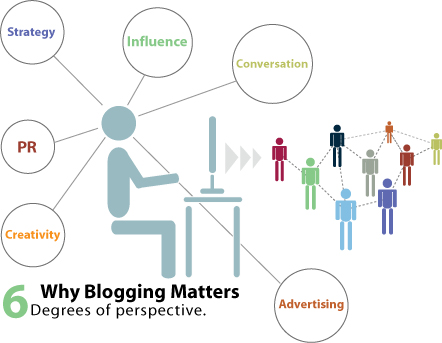 Jason Calacanis’ keynote was themed: From Weblogs, Inc. to Netscape: Maintaining Authenticity and Integrity Within Commercial Social Media.
Jason Calacanis’ keynote was themed: From Weblogs, Inc. to Netscape: Maintaining Authenticity and Integrity Within Commercial Social Media.
Integrity. I was looking forward to this presentation after the aggressive stance Jason took earlier in the week in response to Newsgator’s experimentation with advertising on Newsgator Online.
“Good morning. My name is Jason and I’m a blogger.”
There are all types of uses for a blog today – to express a personal view, to build a business or to generate revenue. A blog is like paper. You can make a book, a beautiful magazine or toilet paper.
(Justin Hall began the first blog in 1995. If you don’t know who Justin Hall is, find the movie, HomePage, and learn about the roots of blogging.)
“The thing that attracted me to blogs was authenticity. They are very real.”
The year 2003 was the year when blogs really broke through. That was a dark time full of mistrust of mainstream media (Fox News!) Blogging software already existed. And when a large number of tech people were laid off, the perfect conditions were created for blogging to break out – motivation, tools and people.
In 2003, Jason was publishing an online magazine. And as he watched his writers go out and be successful with the then emerging blog outlets. And as he watched his traditional publishing business wind down, he realized that he needed to change. Out of this, Weblogs was born. At a time when the business model was not proven and when there was suspicion about trying to commercialize blogs.
Jason regaled the room with anecdotes of his seminal moments with other web and blogging personalities – some happy (Peter Rojas, Mark Cuban) and some unhappy (Nick Denton).
 “We’re all outsiders. Bloggers have found their own space, they’ve made it the way they want it, and they don’t like when you screw with it.”
“We’re all outsiders. Bloggers have found their own space, they’ve made it the way they want it, and they don’t like when you screw with it.”
His deal with Time Warner was found on an understanding that Time Warner would never try to mess with the Weblogs content.
“The forces of evil: Whenever something great is made, the marketers come in. There are good marketers and there are bad marketers. There are good people in life and there are bad people. …. There are some bloggers who are great. And there are some people who suck at it.”
“Want to be an A-list blogger. Go to Techmeme. Look for the top three stories. Write about them every day. Go to the blogs of the other people who are writing about these stories and comment. Do this every day and attend every conference going. And you’ll be an A-lister. Write once every two weeks and wonder why you aren’t an A-lister?
“Blogging is the biggest meritocracy in the world. It’s not broken. You don’t rank? It’s because you suck. … How well you do is up to you.”
“It really is obnoxious to look at the space and say it’s broken because you’re not doing well. If you want to succeed, do a better job.”
“Then we have people who come along – like Payperpost. Now we get into the evil part of me. … I care when somebody comes into this beautiful place where trust and authenticity matters. And then these people come in and … they get into trickery…. If you go selling your posts and not disclosing it, that’s not innovative, that’s lying.”
At Weblogs, “we maintain a church and state separation of advertising and bloggers. The bloggers know about the ads when they see them on the site.”
 “I’ve been talking about the payperpost folks. And I want to go over some of the arguments. … One of the things we do best as bloggers is argue. … But it’s always with a smile that we debate…. But you can be intellectually dishonest when you debate.”
“I’ve been talking about the payperpost folks. And I want to go over some of the arguments. … One of the things we do best as bloggers is argue. … But it’s always with a smile that we debate…. But you can be intellectually dishonest when you debate.”
“One of the first arguments of the payperpost people is, “We’re just an enabler.” When you enable people to do something wrong, you are part of it.
“They make the other crazy argument that The A list bloggers are trying to keep the Z list bloggers down. There are no A list bloggers. Just people who’ve been at it longer.”
“Tim Draper, you put $3 million into a company doing covert marketing. What were you doing? … What were you thinking, Tim Draper?”
Final thing: “This podcasting thing is going to be big. Two years ago I said that I didn’t see it. I was wrong. … Probably 20% of what I write is wrong. But that’s OK, because we get there together.”
“Something’s going on. I listen to more radio than I ever have and I never turn on a radio. Something big is going on. … I want to podcast and I don’t need the pay cheque. I will be dong calacaniscast on podtech. Podtech and GoDaddy together have donated over $100,000 to sponsor 50 episodes together. And the money will be used to sponsor two girls to attend the Baycrest private school in New York City.”
Audience question: What about YouTube? “I was fabulously wrong about YouTube. … At the end of the day was there growth based on a ton of copyright violations? Duh. But at the end of the day, I’ll give them credit for threading the needle. … Unlike Napster, they cut deals with the content rights holders. …. I believe that YouTube will go down as the company that will be seen to have convinced content holders to put their content out there and then to figure out how to make money later.”
Audience question: Why did you sell Weblogs? “When to sell your company is a personal question that depends upon your shareholders and where they are in their lives. Our shareholders were offered a deal that would pay them for the next three years of their lives. They wanted it and they took the deal. … You have to look at these things on a personal basis and pick when you exit. … This was right for our shareholders.”
Audience question: How about if you are transparent that somebody has given you money for something? “Yes. Transparency counts. … But if you’re going to make a media business out of it, you never ever want anyone to be able to say that you benefited from the people you wrote about. … All you have as a blogger is your authenticity, your trust.
Fight, do not ever let anybody get inside the blog post.”
An entertaining sesson with lots of quality name dropping. Look for it on YouTube.
 The next session was a panel with Halley Suitt, Janet Johnson, and Buzz Bruggeman.This session was billed as: Engaging with Bloggers: Working the Blogosphere. It promised to provide insight into the right way to approach blogger relations.
The next session was a panel with Halley Suitt, Janet Johnson, and Buzz Bruggeman.This session was billed as: Engaging with Bloggers: Working the Blogosphere. It promised to provide insight into the right way to approach blogger relations. 

 Jason Calacanis’
Jason Calacanis’

 Jeremy Pepper
Jeremy Pepper The doors have opened on Blog Business Summit 06. The room is great: loads of power bars for notebooks and Wi Fi!
The doors have opened on Blog Business Summit 06. The room is great: loads of power bars for notebooks and Wi Fi!
 But I do. I’ve always been faithful to Air Canada and Aeroplan.
But I do. I’ve always been faithful to Air Canada and Aeroplan.


 I’ve only recently discovered
I’ve only recently discovered  Dan Greenfield’s
Dan Greenfield’s 
